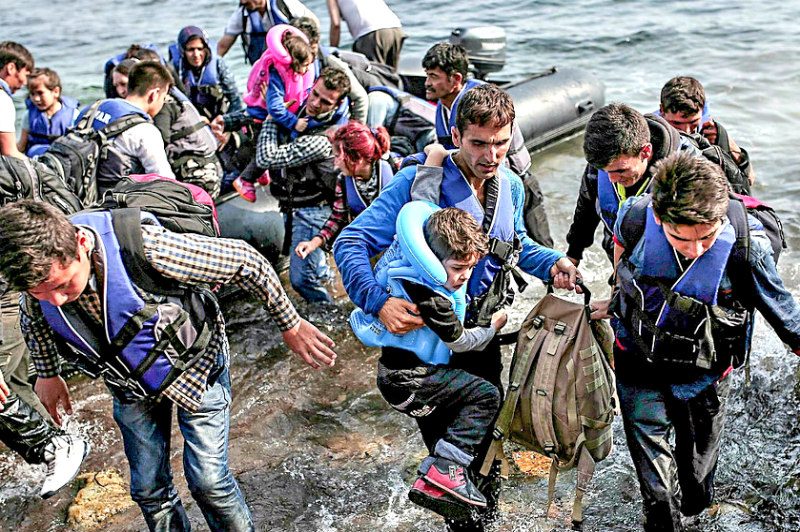Brussels – ESI presents: Agenda setting in the EU - the example of the 'Merkel Plan'

ESI Senior Analyst Alexandra Stiglmayer presented ESI's successful campaign in favour of an EU-Turkey migration deal to a group of mid-career professionals enrolled in a master's programme at the Berlin-based Hertie School of Governance, who were visiting Brussels.
She told the 20 participants that when the refugee crisis hit the EU in 2015, ESI was immediately aware that the key to reducing the chaotic influx of refugees, who risked their lives to reach the EU via the Aegean, lay in an agreement with Turkey, the main transit country. Having worked since 2011 on achieving an EU-Turkey visa liberalisation process and then following its implementation, ESI had the necessary knowledge about migration routes and refugee policies, and EU and Turkish views.
Already in September 2015, ESI outlined a solution that aimed to reduce the influx and replace it with a safe and legal way for refugees to reach the EU. Based on close cooperation between the EU, Germany and Turkey, the main elements of what ESI baptised its "Merkel Plan" were the orderly resettlement of a substantial number of Syrian refugees from Turkey to Germany and other willing EU countries; the closure of the Turkey-Greece irregular migration route by Turkey taking back, from a certain date, all migrants, including asylum seekers, who reach Greece; Turkish efforts and EU funding to improve the situation of then 2.2 million Syrian refugees in Turkey; and visa-free travel for Turkish citizens, a long-standing demand of Ankara. Over the following months, ESI ran an intensive advocacy campaign aimed at convincing German and EU leaders of this solution. ESI had dozens of bilateral meetings, published numerous policy reports, newsletters, opinion pieces and blogs, and gave many gave public and closed presentations.
She said the conclusion of the EU-Turkey deal on 18 March along the lines suggested by ESI was a spectacular success for a small think-tank like ESI. However, she added, while the agreement has been effective in significantly reducing the influx of refugees, its implementation is alarmingly insufficient.
Alexandra said the EU should have immediately launched an EU Asylum Support Mission in Greece to help the overwhelmed Greek authorities process asylum claims and return to Turkey refugees for whom Turkey is safe. As this has not happened, as of 10 June, Greece had returned only 462 refugees and migrants to Turkey, the vast majority having returned voluntarily and not based on a return decision issued by the Greek Asylum Service.
She also said that the EU is slow in implementing its commitments. EU member states are due to voluntarily resettle significant numbers of Syrians – the figures mentioned during the negotiations were 100,000-250,000 -, but are still only "preparing" for it. Of 3 billion Euro that international aid agencies in Turkey are to receive in 2016 and 2017 to improve the conditions for Syrian refugees in the country, only 200 million have been contracted. And visa-free travel for Turkey is uncertain because the EU refuses to grant it unless Turkey meets the six remaining open benchmarks of its 2013 visa roadmap with 72 conditions. Turkey, on the other hand, had not improved conditions for non-Syrian refugees in Turkey and not put into effect all provisions of the 2013 EU-Turkey readmission agreement, which should have happened on 1 June.
Alexandra said unless things change, the agreement could unravel in the coming months, which would put the EU under renewed migration pressure and most likely lead to draconian policies against refugees, help populist parties gain even more support and deal a heavy blow to EU-Turkey relations.
Her presentation was followed by a lively debate.
The participants from the Hertie School of Governance were in Brussels for a three-day workshop focusing on current EU issues including migration, the euro crisis, EU foreign policy and the fight against terrorism. They are enrolled in the Executive Master of Public Administration (EMPA) from the school.
- ESI website The Merkel-Samsom Plan – A proposal for the Syrian refugee crisis with all ESI papers, postings, media clippings and events
- Participants of the Brussels workshop
